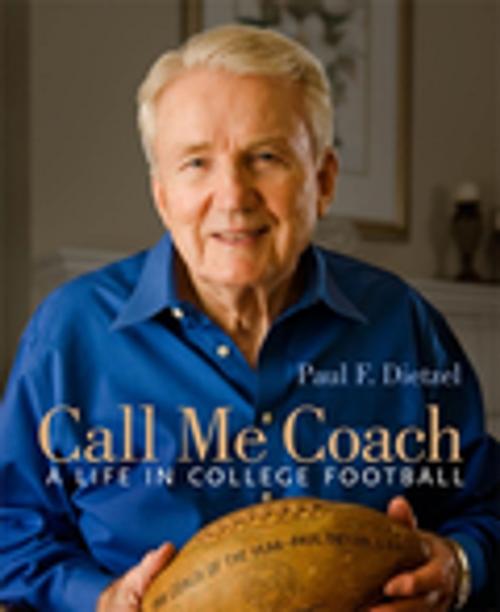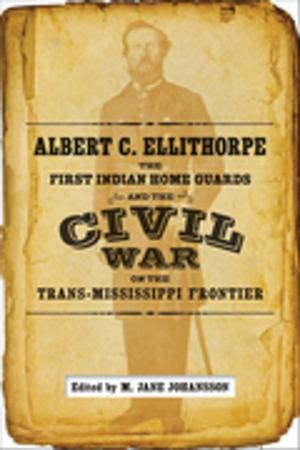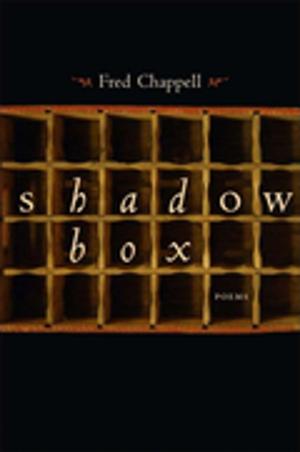| Author: | Paul F. Dietzel | ISBN: | 9780807144503 |
| Publisher: | LSU Press | Publication: | September 15, 2008 |
| Imprint: | LSU Press | Language: | English |
| Author: | Paul F. Dietzel |
| ISBN: | 9780807144503 |
| Publisher: | LSU Press |
| Publication: | September 15, 2008 |
| Imprint: | LSU Press |
| Language: | English |
When LSU head football coach Paul Dietzel saw Billy Cannon field an Ole Miss punt on LSU's own eleven yard line on a stifling Halloween night in 1959, his shouts of "No, no, no!" turned to "Go, go, go!" as Cannon eluded tackler after tackler, sending fans in Tiger Stadium into a frenzy and earning himself that year's Heisman Trophy. Dietzel is probably best known for leading LSU to its first national championship the year before Cannon's legendary run, but his career in athletics also carried him to numerous posts across the country and put him in the company of some of the best coaching minds of all time. In Call Me Coach, Dietzel affectionately recalls his rich and varied life in college football.
In 1948, Dietzel decided to forgo medical school at Columbia University to become the plebe football coach at West Point. As an assistant over the next few years, he worked with Bear Bryant at the University of Kentucky, Colonel Red Blaik and Vince Lombardi at West Point, and Sid Gillman at the University of Cincinnati. Taking the job of head coach at LSU in 1955, he reversed the Tigers' losing skid and -- using the wing-T formation and a revolutionary three-team substitution system incorporating the White Team, the Go Team, and the renowned Chinese Bandits -- crafted 1958's unbeaten championship season. The thirty-three-year-old Dietzel was voted National Coach of the Year by the widest margin ever.
Back at West Point from 1961 to 1965, Dietzel rallied the Cadets to finally "beat Navy" and, as South Carolina's football coach and athletics director from 1966 to 1974, he took the Gamecocks to their first bowl game in twenty-five years and mandated the recruitment of black athletes in all sports programs. After twenty years as a head coach, with 109 wins and 95 losses at three schools and a postseason record of 11 victories and 3 defeats, Dietzel retired from coaching in 1974, later serving as athletics director at Indiana and LSU.
Through Dietzel's eyes, readers glimpse college football during a simpler time but also see that many facets of the game -- including recruitment challenges, job insecurity, press relations, and fickle fans -- remain constant. Highlights among the book's many unforgettable anecdotes are a 1962 interview with Howard Cosell, discussion about West Point's football team with General Douglas MacArthur, and a rare disagreement with Bear Bryant during a staff meeting.
Dietzel's recollections of his early and later years help complete the story of the man. In a warm raconteur's voice, he describes his impoverished childhood in Ohio, his own participation in high school and college sports, and his stint flying B-29 missions over Japan during World War II. His postretirement endeavors have included providing color commentary for TV, selling fudge, teaching skiing, and watercolor painting. Always at the top of Dietzel's priorities have been friends, family, and faith.
Gratitude rings as a constant refrain in Call Me Coach, and sports enthusiasts everywhere will be grateful that Dietzel has shared these recollections of his remarkable life.
When LSU head football coach Paul Dietzel saw Billy Cannon field an Ole Miss punt on LSU's own eleven yard line on a stifling Halloween night in 1959, his shouts of "No, no, no!" turned to "Go, go, go!" as Cannon eluded tackler after tackler, sending fans in Tiger Stadium into a frenzy and earning himself that year's Heisman Trophy. Dietzel is probably best known for leading LSU to its first national championship the year before Cannon's legendary run, but his career in athletics also carried him to numerous posts across the country and put him in the company of some of the best coaching minds of all time. In Call Me Coach, Dietzel affectionately recalls his rich and varied life in college football.
In 1948, Dietzel decided to forgo medical school at Columbia University to become the plebe football coach at West Point. As an assistant over the next few years, he worked with Bear Bryant at the University of Kentucky, Colonel Red Blaik and Vince Lombardi at West Point, and Sid Gillman at the University of Cincinnati. Taking the job of head coach at LSU in 1955, he reversed the Tigers' losing skid and -- using the wing-T formation and a revolutionary three-team substitution system incorporating the White Team, the Go Team, and the renowned Chinese Bandits -- crafted 1958's unbeaten championship season. The thirty-three-year-old Dietzel was voted National Coach of the Year by the widest margin ever.
Back at West Point from 1961 to 1965, Dietzel rallied the Cadets to finally "beat Navy" and, as South Carolina's football coach and athletics director from 1966 to 1974, he took the Gamecocks to their first bowl game in twenty-five years and mandated the recruitment of black athletes in all sports programs. After twenty years as a head coach, with 109 wins and 95 losses at three schools and a postseason record of 11 victories and 3 defeats, Dietzel retired from coaching in 1974, later serving as athletics director at Indiana and LSU.
Through Dietzel's eyes, readers glimpse college football during a simpler time but also see that many facets of the game -- including recruitment challenges, job insecurity, press relations, and fickle fans -- remain constant. Highlights among the book's many unforgettable anecdotes are a 1962 interview with Howard Cosell, discussion about West Point's football team with General Douglas MacArthur, and a rare disagreement with Bear Bryant during a staff meeting.
Dietzel's recollections of his early and later years help complete the story of the man. In a warm raconteur's voice, he describes his impoverished childhood in Ohio, his own participation in high school and college sports, and his stint flying B-29 missions over Japan during World War II. His postretirement endeavors have included providing color commentary for TV, selling fudge, teaching skiing, and watercolor painting. Always at the top of Dietzel's priorities have been friends, family, and faith.
Gratitude rings as a constant refrain in Call Me Coach, and sports enthusiasts everywhere will be grateful that Dietzel has shared these recollections of his remarkable life.















